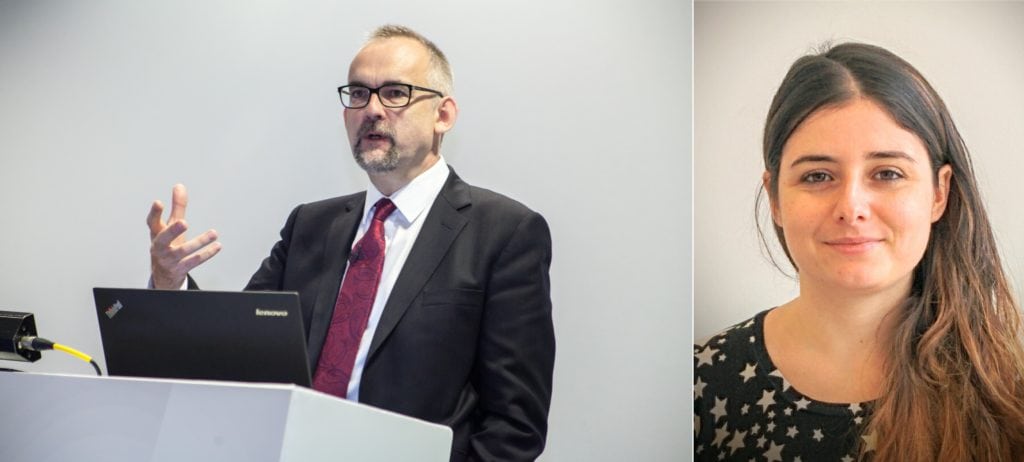Inflammatory Bowel Disease (IBD)
Professor Chris Probert

Right: Dr Alessandra Frau – Post-Doctoral Research Associate
Institution: University of Liverpool
Title: Characterization of the gut mycobiome* in an inception cohort of paediatric inflammatory bowel disease patients
Project Start Date: 1 April 2018
Completion Date: 31 March 2019
Summary:
The cause of inflammatory bowel disease (Crohn’s disease and ulcerative colitis) is unknown. For some time, we have known that some patients have signs of white cell reaction (immune response) to specific yeasts. This was thought to be a result of intestine inflammation from Crohn’s disease causing a leaky gut that allowed the yeasts into the body of the patient. Recent studies of the genes linked to the risk of inflammatory bowel disease suggest that some patients with Crohn’s disease may have an impaired immune response allowing fungi and yeasts to live in the intestine more easily. This year, the ability of some yeast to damage the intestine leading to inflammation and a leaky gut was shown in laboratory mice. Several labs have looked for yeasts and fungi in the intestine of children with Crohn’s disease, with conflicting results. In this study, we propose to look at children attending hospital with possible Crohn’s disease: stool and blood samples will be taken at the first visit, before the diagnosis is made and treatment started. The children will be investigated and treated in the standard way. Some children will be found to have Crohn’s disease, others will have other diagnoses. We will compare the samples from these two groups of children in order to understand the role of yeasts and fungi on the development and course of Crohn’s disease.
We are collaborating with Prof Stephen Allen of Alder Hey Hospital who will lead the identification of patients and collection of samples with additional input from Dr Rafeeq Muhammed (Birmingham Children’s Hospital) and Dr Chris Spray (Bristol Royal Hospital For Sick Children).
We have new tools to study fungi and we have access to samples from new patients: this is particularly important as we can study fungi before diet and drugs, used to treated IBD, have been started.
We will study samples from newly diagnosed children with IBD and from other children with gastrointestinal symptoms who do not have IBD. We will compare the fungi in their faeces using modern molecular techniques. The study of these samples will begin in April 2018 and will last for one year. We will report our findings to Guts UK in May 2019 and we aim to publish our finding in the medical research press later in 2019.
Our data will help to understand the role of yeasts and fungi on the risk of Crohn’s disease and their influence on disease flares and response to treatment. We will be better able to talk to patients when they ask us about Candida (which is a common question) as well as other fungi. We will publish our findings and, depending on the results, seek additional funds to try to correct any imbalance in gut fungi that we discover.
There has been a great deal of interest in gut bacteria and the effect on Crohn’s disease. However, fungi have been comparatively less well researched.
Future work will investigate how to modify yeasts and fungi by diet or specific (gentle) anti-fungal drugs. This could change the disease course in Crohn’s disease.
What is the difference between the mycobiome and the microbiome?
The mycobiome is the collection of fungal species that live in the human body, including the gut. It’s considered to be part of the microbiome, which also includes bacteria, viruses and other microorganisms.